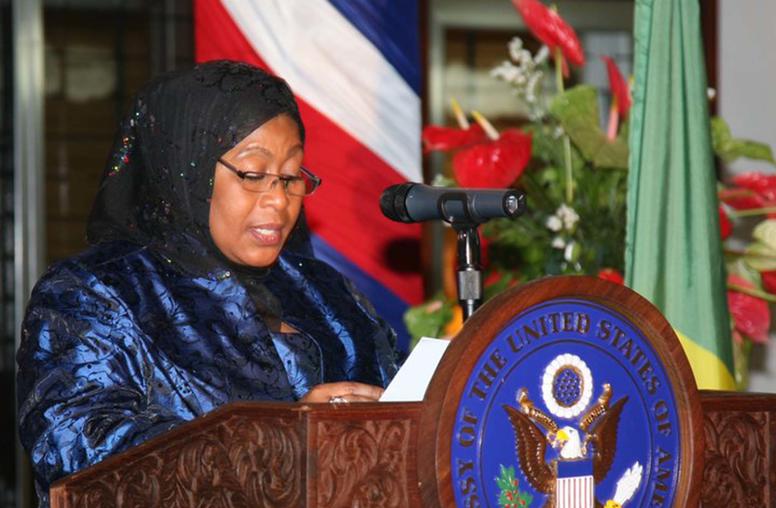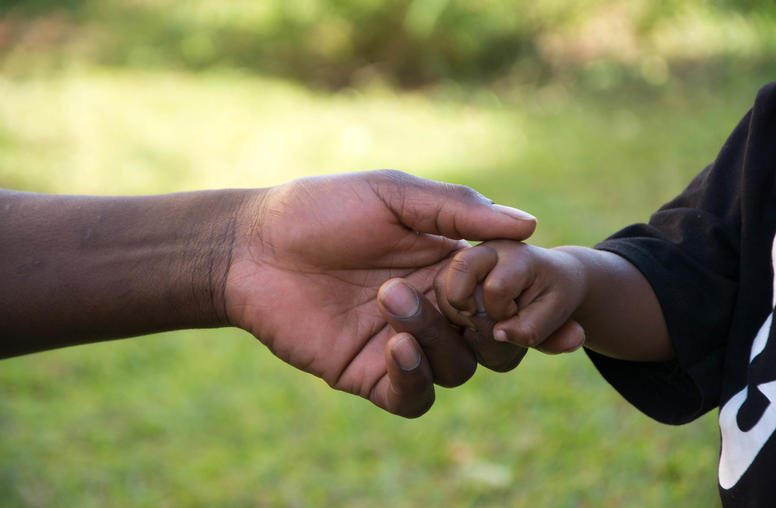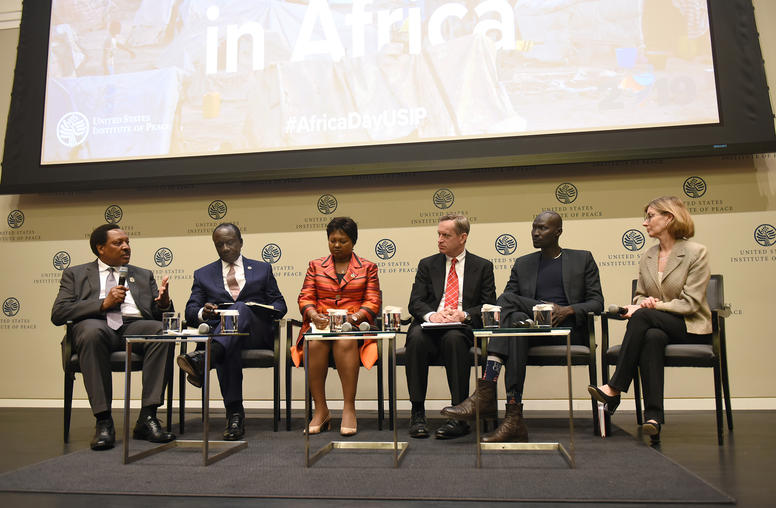Training for most militaries around the world requires good instruction, lots of practice, and a large amount of remote territory. The 4th battalion of the Tanzanian military was no exception. Jeff Helsing and Alison Milofsky of USIP’s Academy provide an account of their recent ACOTA program training in Tanzania.
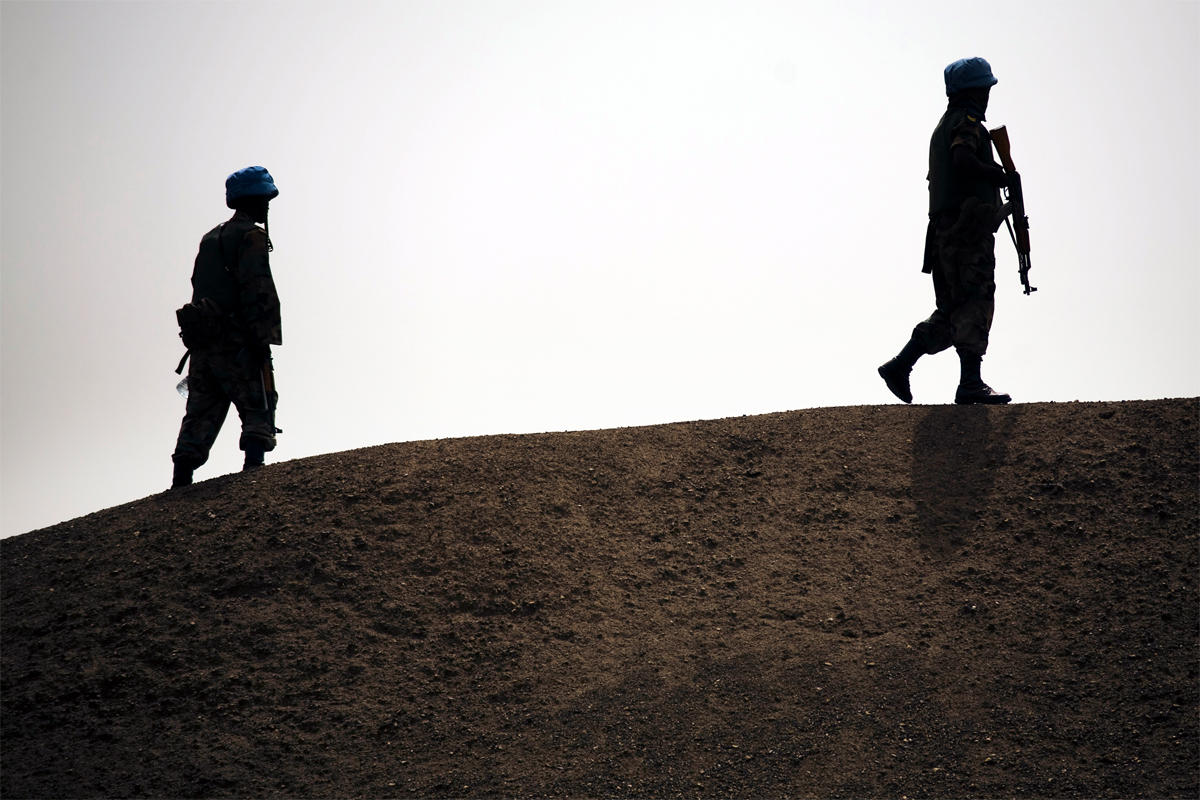
Training for most militaries around the world requires good instruction, lots of practice, and a large amount of remote territory. The 4th battalion of the Tanzanian military was no exception. For almost two and a half months in June, July and part of August, this Tanzanian battalion was stationed some 150 kilometers to the west of Dar es Salaam, the capital of Tanzania, in order to prepare for deployment as peacekeepers in the province of South Darfur in Sudan.
For three days of that training the officers, senior sergeants and warrant officers were instructed in ways to understand conflicts and resolve them peacefully, communicate effectively with people who have been traumatized by years of violence, and protect civilians during times of war. The training was conducted by Jeff Helsing and Alison Milofsky of USIP’s Academy for International Conflict Management and Peacebuilding, as part of the U.S. State Department’s Africa Contingency Operations Training and Assistance (ACOTA) program, which trains African military units deploying to African peacekeeping missions. The USIP staffers provided the following account.
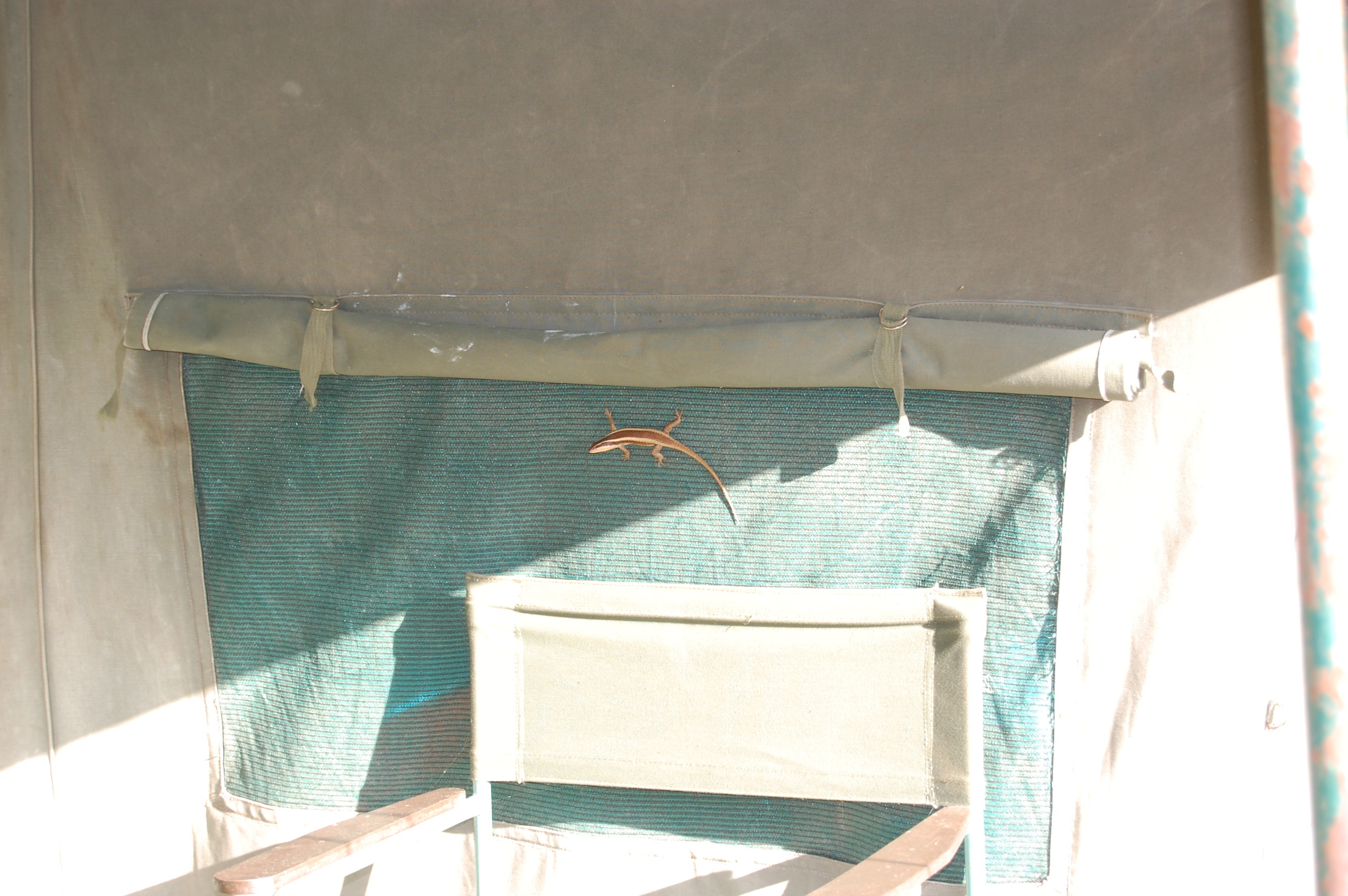 We arrived at a small camp that was a fenced-in collection of about 15 tents. This was where the trainers would reside during their training sessions, getting up before dawn and heading out for a 45-minute drive over a very rutted road to the remote military base. Most of the trainers are ex-military combat veterans who provide primarily military skills. Upon our arrival at dinner time, we were greeted warmly and our new colleagues wondered whether we were ready for the dangers that lurked all around us. The previous morning a 2-3 foot green mamba snake was found in one of the bathrooms attached to a sleeping tent. Apparently, the venom of such a deadly snake can kill within 20 minutes; we were told that the nearest hospital with anti-venom serum was 2 hours away. If nothing else, that information certainly helped to heighten our focus.
We arrived at a small camp that was a fenced-in collection of about 15 tents. This was where the trainers would reside during their training sessions, getting up before dawn and heading out for a 45-minute drive over a very rutted road to the remote military base. Most of the trainers are ex-military combat veterans who provide primarily military skills. Upon our arrival at dinner time, we were greeted warmly and our new colleagues wondered whether we were ready for the dangers that lurked all around us. The previous morning a 2-3 foot green mamba snake was found in one of the bathrooms attached to a sleeping tent. Apparently, the venom of such a deadly snake can kill within 20 minutes; we were told that the nearest hospital with anti-venom serum was 2 hours away. If nothing else, that information certainly helped to heighten our focus.
We quickly learned a few simple rules of “living in the bush.” Whenever you open a tent flap, don’t walk in but first look up, then down, then right and left. Make sure the coast is clear. Fortunately, no snakes were encountered—many lizards, geckos and the occasional rat and spider. A very reliable flashlight is your new best piece of equipment. Carry lots of insect repellent; the mosquitos are everywhere. Don’t forget your morning malaria pill. And have lots of water on hand; it is easy to get dehydrated.
When we first arrived at the military base, most of the officers were already waiting for us and they were eager to get started. In fact, they were usually eager throughout the training. There was very little peacekeeping experience among the soldiers in this battalion so they were anxious to acquire any skills that would make their jobs easier and enable them to find ways of managing conflicts and protecting civilians without resorting to the use of force. The USIP training sessions were a mix of lectures built around PowerPoint presentations (a favorite of most militaries around the world), video clips, small group discussions, role plays and group problem solving. The latter activities are really the most important because those sessions enabled the participants to practice the skills they were learning and also helped build team cohesion. This would be particularly important because when they are deployed to Darfur, they will have to work closely together. Also, working in small teams is valuable because they had a lot to learn from each other. Modeling a process that values input from all the officer corps while respecting a military chain of command will be useful when dealing with the many challenges in Darfur.
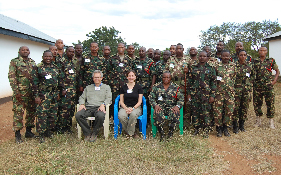 The soldiers were very professional, but many were apprehensive because they knew so little about Darfur. One of the many challenges faced in any training is the language of teaching. English is an official language of Tanzania, but that does not mean that one can easily convey new concepts such as those related to conflict resolution and peaceful negotiations in what is essentially a second or third language for the officers. That means that one has to speak deliberately and clearly as well as reinforce key concepts repeatedly and in different ways. That is one reason why role play exercises, small group activities and videos are critical for learning. They are different ways of reinforcing the key concepts of the training workshop. But even with those different learning tools, the USIP staff were delighted to find one of the officers could serve as a great translator from English to Swahili. Our translator quickly showed that he understood the core ideas and contributed greatly to the success of the workshop.
The soldiers were very professional, but many were apprehensive because they knew so little about Darfur. One of the many challenges faced in any training is the language of teaching. English is an official language of Tanzania, but that does not mean that one can easily convey new concepts such as those related to conflict resolution and peaceful negotiations in what is essentially a second or third language for the officers. That means that one has to speak deliberately and clearly as well as reinforce key concepts repeatedly and in different ways. That is one reason why role play exercises, small group activities and videos are critical for learning. They are different ways of reinforcing the key concepts of the training workshop. But even with those different learning tools, the USIP staff were delighted to find one of the officers could serve as a great translator from English to Swahili. Our translator quickly showed that he understood the core ideas and contributed greatly to the success of the workshop.
The commanding officer talked informally with the USIP staff about the challenges his 4th Tanzanian battalion would face in Darfur. The first thing he discussed was the climate. The heat and dust would put a severe physical strain on everyone. He was confident in his forces but concerned that the challenging weather could undermine their effectiveness. His second concern was that very few of his troops had any peacekeeping experience. He noted that three or four of his officers had been part of a peacekeeping mission to Darfur and that six soldiers from a mechanized division had served as drivers in Darfur but otherwise this would be a new challenge to his soldiers. He also expressed concern that the independence of Southern Sudan (which took place the day after the USIP portion of their training ended) would divert international and United Nations attention from Darfur and that the security situation could easily deteriorate. If so, it could put a great strain on protecting civilians, compounded by the fact that so many international NGOs had either left the area voluntarily or had been forced to leave by the government.
In addition, one of the difficulties that peacekeepers in Darfur face is the shifting relationship between the Government of Sudan, the Sudanese military and militias loyal to the government. At times, the ties seem very close and at other times, there is a distance, enabling the government to deny responsibility for acts committed by the militias. Will the problems in Southern Sudan make the government more inclined to take a stronger stand against the rebels groups, thus escalating violence? These are among the many dilemmas he knew he and his fellow Tanzanians would face but he was hopeful that the skills and tools of conflict resolution, negotiations and communications provided the USIP staff would be just as valuable as the enhanced military training they had received.
Each day as we returned to our camp from the military base, we drove along a very rutted dirt road surrounded by lush hills and long grasses. Occasionally a baboon would scamper along the road or women and girls would be returning to small villages from the local watering hole with a vessel of water balanced securely on their heads. This served as a daily reminder of how peaceful and beautiful Africa can be. The soldiers from the 4th battalion will soon face the challenge of protecting other villagers, herders and farmers from the terrible wages of war and helping them secure the same peace that has taken root in Tanzania.

